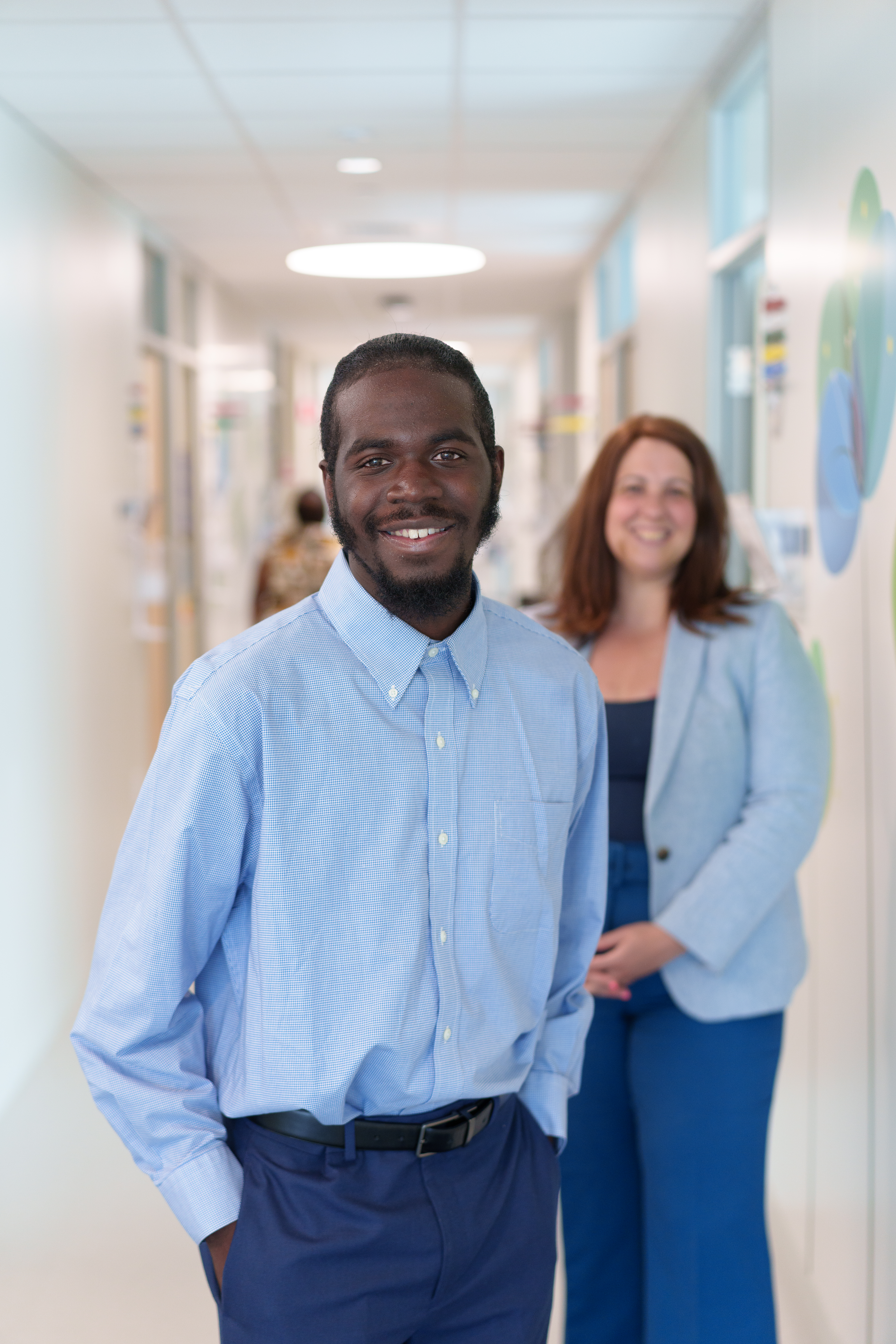An autism diagnosis means different things for different families, but a common truth: Care for a disorder with many co-occurring conditions is complicated. It’s where BMC’s Autism Program comes in with centralized, family-centric resources that leave no child behind. With confidence in that care, Karen Kames and Chris Gaffney made a recent leadership gift to not only boost the Autism Program’s existing services, but also to ensure those children in BMC’s care can grow as thriving adults.
When the couple’s daughter, Olivia, was diagnosed with autism at age 16 at another health-care institution, Kames remembers their fight for the best support for their daughter. “I come from a family of educators, and we have resources, and it was still a labyrinth trying to get Liv what she needed,” she shares. “If this is my experience, what is everyone else’s experiences?”
BMC supporters long before Olivia’s diagnosis, the family now had an opportunity to get to know the Autism Program, formally established in 2006 and led by Shari Krauss, MA, MPH, in the department of pediatrics. They were impressed.

Hands-on support for more than 1,500 patients a year is shaped by a single question: What do you need to be successful—in your home, your school, and your community? Every encounter is tailored to patients’ and families’ unique needs and interests.
“You can’t just hand someone a number to call,” Kames says. “When Liv was diagnosed, if I had found my way to this clinic with practical support, it would have made the journey much less frightening.”
Parents may get help for their child’s selective eating, sleep problems, or anxiety—a few of the common conditions associated with autism spectrum disorder— along with assistance securing educational resources and social support. Yet as strong as BMC’s Autism Program is, patients are faced with a hard reality. After high school, services provided through state-sponsored special education programs fall away.
Without strong transition-to-adulthood plans, patients can struggle while parents scramble to cobble together a meaningful next chapter. Unemployment among adults with autism is 85%, much higher than adults with other disabilities.
Vision for the Future
Krauss acknowledges establishing an adult program is new terrain—few programs in the nation exist, and none with the aspirations Krauss hopes to achieve. During Krauss’s career, she saw the evolution of autism care, from the race to early diagnosis, to investments in teens, to the realization that our teens are now all grown up.
“Our systems aren’t ready,” says Krauss. “All the work we’ve put into the pediatrics space we need to put into adult care, and it will take a whole universe of advocates, individuals, families, and funders to do it.”
The Kames-Gaffney gift will support the hiring of an adult autism resource specialist, who will ensure patients get a gold standard of coordinated care across departments. The specialist also will build resources beyond the hospital—connecting dots for housing, jobs training, and more, all proven to strengthen health outcomes.
“We’re paving the way for what support for adults should look like,” Krauss says.
Power of Philanthropy
The Kames-Gaffney family is excited by the program’s promise.
“Every family who has a child with special needs, you go to sleep at night wondering ‘what is going to happen when I’m gone?’” Kames says. “To help young adults become as independent as they can be is life-changing. When the school resources end, BMC can be there to say, ‘here’s what’s next.’”
The Autism Program is not reimbursable by insurance, making philanthropy essential.
“The reason we even exist is through the generosity of donors like Karen and Chris,” Krauss says. “This gift will be transformative for a population of patients who for a long time have been forgotten. We’re their family, their partners. To be there to support them, it’s monumental.”
Support this leading work and more with a donation to Boston Medical Center today.